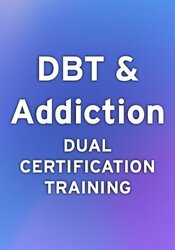Assessing the Timing of Trauma Treatment and SUDs Treatment

While powerful therapy modalities like EMDR can be great tools to treat trauma, trauma treatment for individuals with substance use disorders (SUDs) can be most effective when the client has reached a level of stability that allows them to engage with trauma therapy safely and has the readiness to address trauma-related issues. The timing should be individualized, with a focus on gradual stabilization, skill-building, and integrating trauma work as part of a comprehensive treatment plan.
Here are key considerations for determining when to begin trauma treatment:
Here are key considerations for determining when to begin trauma treatment:
1. Stabilization of Substance Use:
One of the first steps in treating SUDs is achieving stabilization or a reduction in substance use. Treating trauma before stabilization may hinder the individual’s ability to manage the emotional distress that can arise during trauma work. Therefore, it is important to ensure the person is in an appropriate stage of recovery where their substance use is either under control or actively being addressed.2. Assessment of Readiness:
Trauma treatment should begin when the client is psychologically ready to face traumatic memories and emotions. This readiness is often assessed through clinical interviews, and therapists should ensure that the client has adequate coping skills to manage distressing emotions. If the client is struggling with active substance use or unstable mental health symptoms, the therapist may need to focus first on stabilization and symptom management.3. Integrated Treatment Approach:
For clients with both SUDs and trauma histories, an integrated approach that addresses both issues simultaneously or in a staggered manner can be beneficial. Many evidence-based treatments, such as Trauma-Informed Care (TIC) or Cognitive Behavioral Therapy for Substance Use and Trauma (CBT-SUD/Trauma), are designed to address both the trauma and the substance use without requiring a strict sequence of treatment.4. Phased Treatment:
Some therapists use a phased approach:- Phase 1: Focus on stabilization and safety. This includes addressing immediate needs like substance use reduction, building coping skills, and establishing a therapeutic relationship.
- Phase 2: If the client is stable enough, trauma processing can begin, focusing on integrating trauma treatment in a controlled, step-by-step manner to ensure the client doesn't become overwhelmed.
- Phase 3: Once trauma has been processed, relapse prevention and life skills training can help clients maintain progress.
5. Trauma-Informed Care:
While specific trauma treatments (such as EMDR, trauma-focused CBT, etc.) may begin after stabilization, therapists should always practice trauma-informed care. This means being mindful of how trauma may influence a person’s behavior, responses, and treatment progress throughout the process, even if trauma processing is not the immediate focus.6. Concurrent Treatment for Co-Occurring Disorders:
If a client is also dealing with mental health issues such as depression or anxiety along with SUDs and trauma, addressing all of these factors concurrently is crucial for holistic treatment. If substance use is the primary driver of the client’s distress, treatment may focus more on the SUD initially before moving into trauma processing.DBT & Addiction Dual Certification Course: Master Treatment of Substance Abuse, Trauma & Co-Occurring Disorders

Earn two certifications in this dual dialectical behavior therapy and addiction certification course. Train with leading experts and learn start-to-finish DBT skills for various mental health diagnoses, including trauma, dual diagnosis, and more. Then, get a full education in addiction treatment that gives you confidence in even the most challenging crisis situations. PLUS, a free bonus on inner child healing from trauma and addiction, AND your certification fees are included (over $349 value!)!
Meet the Expert:
Paul Brasler, MA, MSW, LCSW, became a licensed clinical social worker in 2002. He is the owner of Providence Consulting & Education, LLC, through which he provides clinical supervision and professional education services. Additionally, Paul provides Ketamine-Assisted Psychotherapy and other clinical services as part of a small practice. Paul has extensive experience in working with people in crisis and people living with substance use disorders, including adolescent residential treatment, community mental health settings, hospital emergency departments, Juvenile Court, and private practice.
Learn more about his educational products, including upcoming live seminars, by clicking here.
Learn more about his educational products, including upcoming live seminars, by clicking here.



